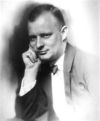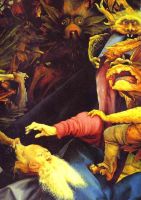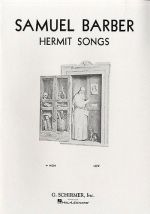Solitude and Hermits in Classical Music
Here are instances of hermits and solitude in Western classical music.
Solitude
Solitude as loneliness, melancholy, or tragedy is well established in classical music in operatic themes, symphonic adagios, and tone poems. In the modern era, Richard Strauss's Also Spake Zarathustra adapted Wagnerian romancticism to a Nietzchean hero of solitude, though towards the end of his life Nietzsche himself rejected Wagner for Bizet's Carmen.
More representative of true solitude in classical music are impressionistic and minimalist pieces by Erik Satie and Federico Mompou, fir example, Satie's famous Gymnopedies and Mompou's Musica callada, or Quiet Music (usually translated as Silent Music). Of mixed reception given the industry of mood creation for movies nowadays is "crossover classical" music by, for example, Ludovico Einaudi and Ryuichi Sakamoto, which does strike a mood of solitude in many works. But no Western minimalism will achieve the sense of solitude expressed by many Native American and Japanese classics.

One classical work that establishes a formal relationship to solitude
is that of the English composer Henry
Purcell (1659-95), who presented an ideal of solitude in
his
vocal composition "O, Solitude," composed
in 1684. The lyrics are in fact from the French poet Marc-Antoine
Girard de Saint-Amant's "La Solitude" (1617) and
translated by Katherine Phillips (1664).
The vocal work has been widely
presented by various artists.
O solitude, my sweetest
choice!
Places devoted to the night,
Remote from tumult and from noise,
How ye my restless thoughts delight!
O solitude, my sweetest choice!
O heav'ns! what content is mine
To see these trees, which have appear'd
From the nativity of time,
And which all ages have rever'd,
To look today as fresh and green
As when their beauties first were seen.
O, how agreeable a sight
These hanging mountains do appear,
Which th' unhappy would invite
To finish all their sorrows here,
When their hard fate makes them endure
Such woes as only death can cure.
O, how I solitude adore!
That element of noblest wit,
Where I have learnt Apollo's lore,
Without the pains to study it.
For thy sake I in love am grown
With what thy fancy does pursue;
But when I think upon my own,
I hate it for that reason too,
Because it needs must hinder me
From seeing and from serving thee.
O solitude, O how I solitude adore!
Hermits
 The English composer
Nicholas Lanier (1599-1666)
composed "The Hermit Poor." One contemporary source attributes the poem
to Sir Walter Raleigh, presumably reflecting the woes of a man fallen
from grace. But like Purcell's work, "The Hermit Poor" is one of
hundreds of Elizabethan madrigals richly expressing a variety
of themes. Requited love hovers at the edges.
The English composer
Nicholas Lanier (1599-1666)
composed "The Hermit Poor." One contemporary source attributes the poem
to Sir Walter Raleigh, presumably reflecting the woes of a man fallen
from grace. But like Purcell's work, "The Hermit Poor" is one of
hundreds of Elizabethan madrigals richly expressing a variety
of themes. Requited love hovers at the edges.
The vocal work has been widely presented by various artists.
Like hermit poor in pensive place obscure
I mean to spend my days of endless doubt,
To wail such woes as time cannot recure,
Where nought but love shall ever find me out.
And at my gates despair shall linger still,
To let in death when love and fortune will.
A gown of grief my body shall attire,
And broken hope shall be my strength and stay;
And late repentance, linked with long desire,
Shall be the couch whereon my limbs I'll lay.
And at my gates despair shall linger still,
To let in death when love and fortune will.
My food shall be of care and sorrow made;
My drink nought else but tears fallen from mine eyes;
And for my light, in such obscured shade,
The flames may serve which from my heart arise.
And at my gates despair shall linger still,
To let in death when love and fortune will.
 German expressionist
composer Paul Hindemith
(1895-1963) addressed the struggles of the creative
personality in an oppressive society with his 1934 opera Matthias the Painter
(Mathis der Maler).
A shorter symphony employs the same themes.
German expressionist
composer Paul Hindemith
(1895-1963) addressed the struggles of the creative
personality in an oppressive society with his 1934 opera Matthias the Painter
(Mathis der Maler).
A shorter symphony employs the same themes.
The historical painter Matthias Grunewald (1470-1528) lived in the
midst of the Protestant Reformation in Germany amidst burning
religious questions and struggles for ecclesiastical and state power.
 Hindemith lived in 1930's Germany, and presented in Matthias the twin
dilemmas of the solitary artist and the solitary hermit, both dedicated
to their solitary "art."
Hindemith lived in 1930's Germany, and presented in Matthias the twin
dilemmas of the solitary artist and the solitary hermit, both dedicated
to their solitary "art."
Should the artist in an
oppressive society prefer his solitary creativity or should the artist
remain active in society in a public way rather than selfishly pursue a
personal vocation?
Part of the opera presents Matthias as St. Antony of the
Desert -- who is in
fact depicted in Grunewald's own Isenheim Altarpiece
(right) --
facing enormous temptations for the sake of his "art," alone and
against the oppressive world he inhabits,
full of demonic forces. Thus the historical Grunwald aptly reflects
both the 16th century and the 20th century concerns of Hindemith.

American
composer Samuel Barber
(1910-1981) based his ten Hermit
Songs on
medieval Irish
poems and fragments translated by 20th century writers such as W. H.
Auden. The 1953
work is for piano and soprano voice. A New York Times
critic describes the Hermit
Songs: "plaintive messages arrive from the
past: about loneliness, lust, religious ardor and the joys of
solitude."
The most representative recording features Barber playing
piano and Leontyne Price singing.
Cherly Studer is also well received among later performers.
- At Saint Patrick's Purgatory
- Church Bell at Night
- St. Ita's Vision
- The Heavenly Banquet
- The Crucifixion
- Sea-Snatch
- Promiscuity
- The Monk and His Cat
- The Praises of God
- The Desire for Hermitage
 The
eremitical sentiment of the songs can be deduced from a
sample of the poems. For example, "Church Bell at Night" sates simply
that
the hermit would rather respond to the summons of a church
bell than to be with a woman, and the little fragment
titled "Promescuity"
says: I do not know with whom Edan will sleep, but I do know that fair
Edan will not sleep alone."
The
eremitical sentiment of the songs can be deduced from a
sample of the poems. For example, "Church Bell at Night" sates simply
that
the hermit would rather respond to the summons of a church
bell than to be with a woman, and the little fragment
titled "Promescuity"
says: I do not know with whom Edan will sleep, but I do know that fair
Edan will not sleep alone."
"The Monk and His Cat," translated by W. H. Auden, exudes the atmosphere of an Irish hermit's cell (the cat's name is from the original old Irish):
Pangur, white Pangur, How happy we are
Alone together, scholar and cat.
Each has his own work to do daily;
For you it is hunting, for me study.
Your shining eye watches the wall;
My feeble eye is fixed on a book.
You rejoice, when your claws entrap a mouse;
I rejoice when my mind fathoms a problem.
Pleased with his own art, neither hinders the other;
Thus we live ever without tedium and envy.
And the last of the poems/songs is "The Desire for Hermitage":
Ah! To be all alone in a little cell with nobody near me;
beloved that pilgrimage before the last pilgrimage to Death.
Singing the passing hours to cloudy Heaven;
feeding upon dry bread and water from the cold spring.
That will be an end to evil when I am alone in a lovely little corner
among tombs
far from the houses of the great.
Ah! To be all alone in a little cell,
To be alone, all alone,
Alone I came into the world,
Alone I shall go from it.
